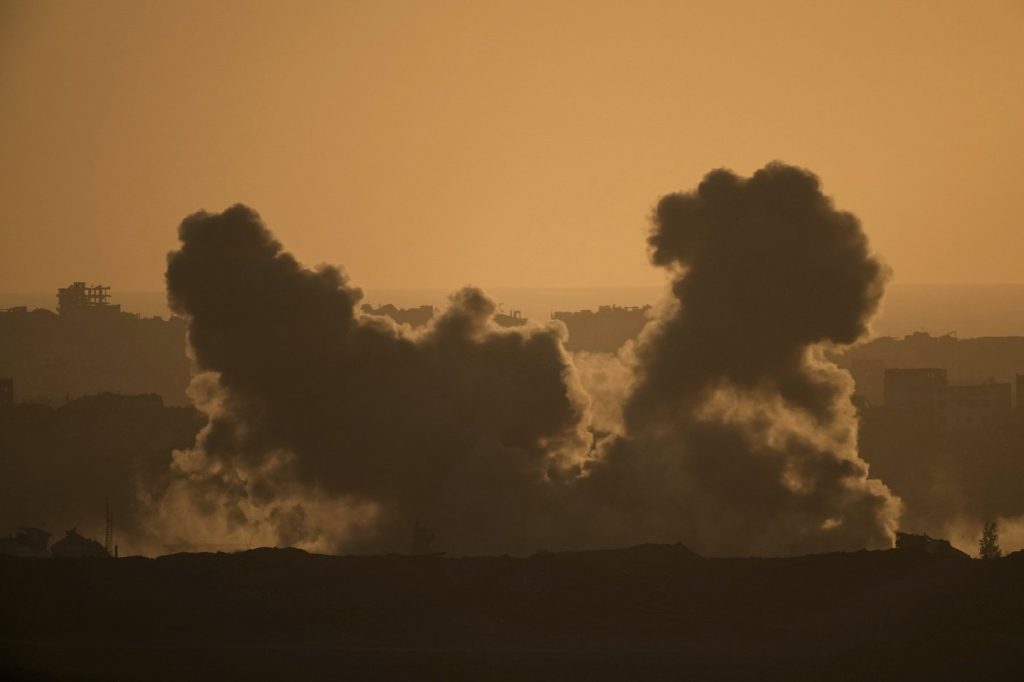DEIR AL-BALAH, Gaza Strip - Israeli airstrikes have resulted in the deaths of at least 40 Palestinians, including 10 members of a family seeking refuge in a tent, according to hospital officials. This devastating incident occurred amid U.S. President Donald Trump's efforts to broker a ceasefire that could potentially halt the ongoing war and facilitate the release of numerous Israeli hostages.
Trump convened with Israeli Prime Minister Benjamin Netanyahu for the second time in two days at the White House on Tuesday evening, yet there were no indications of any significant advancements in the ongoing discussions. Netanyahu has publicly stated his intention to pursue military action against Hamas until the group is completely eradicated. In contrast, Hamas has made it clear that it will only consider releasing the remaining hostages if a lasting ceasefire is established alongside an Israeli retreat from Gaza.
According to Nasser Hospital in Khan Younis, among the deceased are 17 women and 10 children, highlighting the tragic toll of the conflict on civilians. The war has devastated Gaza's healthcare system, which has already suffered from the destruction of multiple hospitals and the loss of key medical personnel due to Israeli airstrikes.
The Israeli military has reported conducting strikes on over 100 targets in Gaza within a 24-hour period, targeting militants, booby-trapped structures, weapons depots, missile launchers, and tunnel systems. The Israeli government alleges that Hamas strategically hides its operatives and weaponry among the civilian population, complicating the military response.
In a heartbreaking account of loss, Um Mohammad Shaaban, a member of the Shaaban family, lamented the loss of all her children and her grandchildren in the airstrike while they were in their tent in Khan Younis. She expressed disbelief that they would be targeted in what she thought was a secure area, saying, "The hospital last night was jam-packed." Her grief was palpable as she mourned over the bodies of her loved ones.
The humanitarian situation in Gaza continues to deteriorate, as the war has led to the deaths of tens of thousands and displaced nearly 90% of the population. Aid organizations have reported that Israeli restrictions, combined with a breakdown in law and order, make it exceedingly difficult to deliver humanitarian assistance, resulting in widespread hunger and heightened concerns about potential famine.
Abeer al-Najjar and her family, displaced from their home and currently residing in tents, struggle to secure adequate food and water amid the relentless bombardments. With the summer heat making conditions unbearable, al-Najjar expressed her desperate wish for a genuine ceasefire, different from previous temporary halts that have proven ineffective. Her husband, Ali al-Najjar, described the dire need for access to potable water, emphasizing their hopes for an end to suffering and the possibility of rebuilding their lives.
As the war worsens, residents have been forced to chase water trucks across the streets, with the infrequent delivery of water leaving families like Amani Abu-Omar's desperate, particularly for her dehydrated children who have also suffered from skin rashes due to the harsh conditions.
The escalation of violence began on October 7, 2023, following a surprise attack by Hamas on Israel, which resulted in approximately 1,200 fatalities and 251 people taken hostage. Israel's military response has led to the deaths of more than 57,000 Palestinians, with a significant portion comprised of women and children, according to statistics provided by Gaza's Health Ministry, which is under Hamas governance.
President Trump indicated optimism regarding the ceasefire negotiations, stating that both he and Netanyahu see eye to eye on the necessity of dismantling Hamas and underscoring the unprecedented coordination between the U.S. and Israel. Trump’s Middle East envoy, Steve Witkoff, is set to travel to Doha, Qatar, to further advance discussions between Hamas and the U.S. on the ceasefire agreement.
As talks continue, key issues remain, including Israel's demand to maintain a military foothold in Gaza during any potential 60-day truce. Trump recognized the complexity of the negotiations, expressing a desire for peace and the safe return of hostages, and remarked that progress toward these goals appears imminent.












